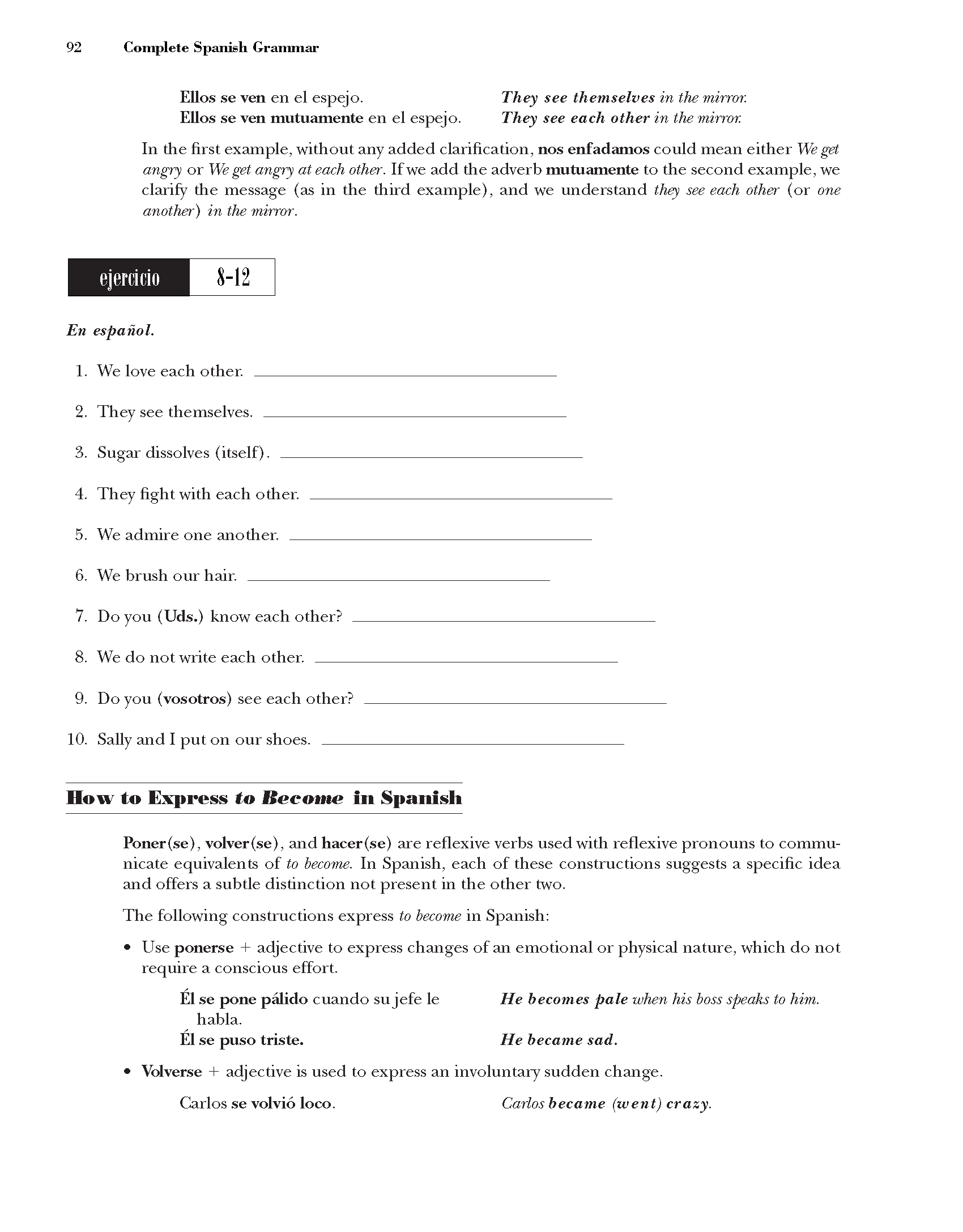CSG103

92
Complete Spanish Grammar
Ellos se ven en el espejo.
Ellos se ven mutuamente en el espejo.
They see themselves in the mirror. They see each other in the mirror.
In the first example, without any added clarification, nos enfadainos could mean either We get
angry or We get angry at each other. If we add the adverb mutuamente to the second example, we clarify the message (as in the third example), and we understand they see each other (or one another) in the mirror.

8-12
En espańol.
1. We love each other. _
2. They see themselves. _
3. Sugar dissolves (itself). _
4. They fight with each other. _
5. We admire one another. _
6. We brush our hair. _
7. Do you (Uds.) know each other? _
8. We do not write each other. _
9. Do you (vosotros) see each other? _
10. Sally and I put on our shoes. _
Ho w to Express to Bocomo in Spanish
Poner(se), volver(se), and hacer(se) are reflexive verbs used with reflexive pronouns to commu-nicate equivalents of to become. In Spanish, each of these constructions suggests a specific idea and offers a subtle distinction not present in the other two.
The following constructions express to become in Spanish:
• Use ponerse + adjective to express changes of an emotional or physical naturę, which do not
require a conscious effort.
El se pone palido cuando su jefe le
He becomes pale when his boss speaks to him.
habla.
El se puso triste.
He became sad.
Vołverse + adjective is used to express an involuntary sudden change.
Garlos se vołvió loco.
Carlos became (went) crazy.
Wyszukiwarka
Podobne podstrony:
CSG023 12 Complete Spanish Grammar 5. Ellos_ (venir) al estudio para ver a su estr
CSG023 12 Complete Spanish Grammar 5. Ellos_ (venir) al estudio para ver a su estr
CSG189 178 Complete Spanish Grammar 3. _ (facturar) su equipaje en el mostrador, t
CSG053 42 Complete Spanish Grammarejercicio Un misterio. Escńbe en el posado. Change the verb in ita
CSG189 178 Complete Spanish Grammar 3. _ (facturar) su equipaje en el mostrador, t
CSG233 222 Complete Spanish Grammar • Use the absolute superlative (el superlativo absoluto) to expr
CSG139 128 Complete Spanish Grammar 12-5ejercicio lQue se hace en estos lugares? Escribe la letra qu
CSG081 70 Complete Spanish Grammar Gompound verbs componer to fix compondre oponer(se) to
CSG139 128 Complete Spanish Grammar 12-5ejercicio lQue se hace en estos lugares? Escribe la letra qu
CSG139 128 Complete Spanish Grammar 12-5ejercicio lQue se hace en estos lugares? Escribe la letra qu
więcej podobnych podstron